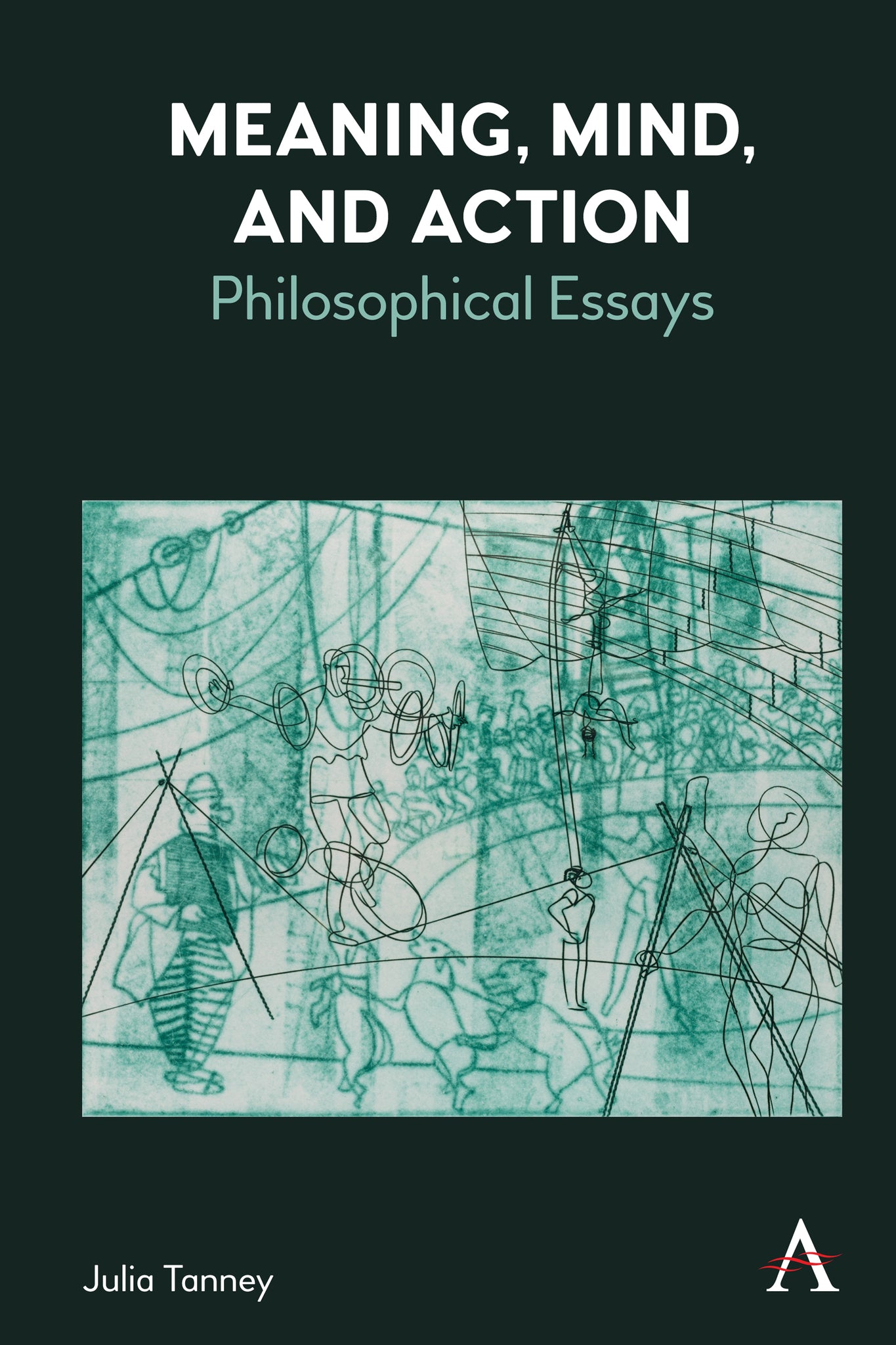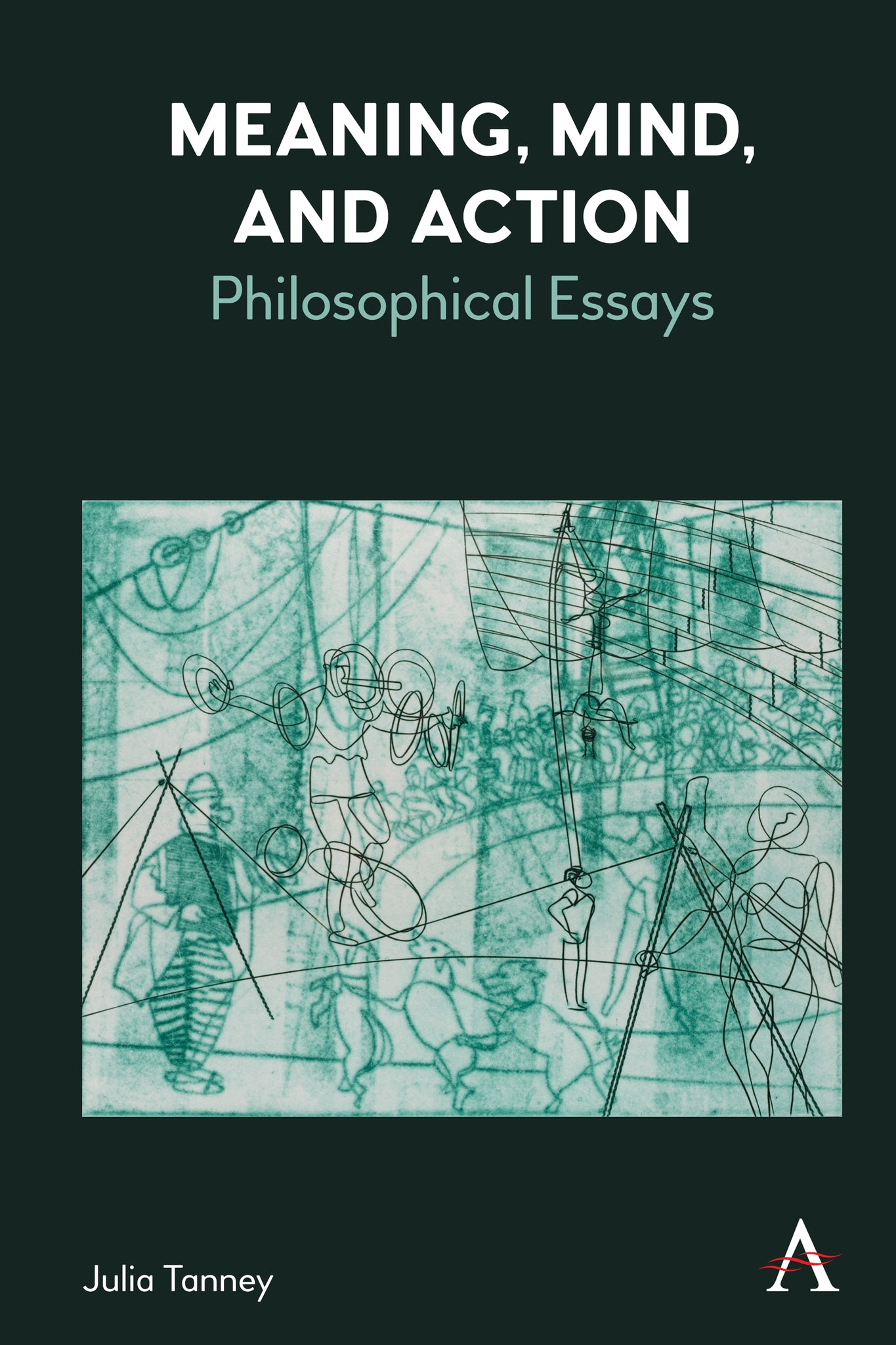We're sorry. An error has occurred
Please cancel or retry.
Meaning, Mind, and Action

Some error occured while loading the Quick View. Please close the Quick View and try reloading the page.
Couldn't load pickup availability
- Format:
-
12 July 2022

Julia Tanney’s Meaning, Mind, and Action challenges widely held presuppositions within philosophy in its classical ‘analytic’, ‘naturalist’, and ‘cognitivist’ forms. Beginning with canonical views in the philosophy of language and logic, the arguments are then applied to discussions of knowledge, action, causation, the nature of the mental, consciousness, and thinking.
Responding to a tradition that harks back to Plato and was resurrected by Mill, Frege, Russell, Moore, and the early Wittgenstein, Meaning, Mind, and Action challenges today’s orthodoxy on its own terms, beginning with canonical views in the philosophy of language and philosophical logic. The arguments of these early chapters are then applied to the theory of knowledge, action, and causation, followed by those on the nature of the mental, consciousness, and thinking. The final section, on the logic of the mental, widens the arguments to include the subject of animal minds, the postulation of mental representations in cultural anthropology, the author’s intention in literary theory, and the philosophical problem of irrationality in psychiatry.

PHILOSOPHY / Essays, Topics in philosophy, PHILOSOPHY / Language, PHILOSOPHY / Mind & Body, Philosophy of mind, Philosophy: epistemology and theory of knowledge

“Julia Tanney has brought together fourteen of her essays, mostly written in the last decade. They display her usual lucidity and thoughtfulness, as well as her characteristic and admirable determination to swim against the current of the times. Her essays are both provocative and convincing, as well as enjoyable to read.” —Peter Hacker, St John's College Oxford, UK.
Introduction; Part I Meaning and Philosophical Logic; Chapter One, Explaining What We Mean; Chapter Two Rule Following, Intellectualism, and Logical Reasoning: On the Importance of a Type Distinction between Performances and “Propositional Knowledge” of the Norms that Govern Them; Chapter Three, Wittgenstein on Rule Following and Interpretation; Part II Knowing, Action, and Causation, Chapter Four What Knowledge Is Not: Reflections on Some Uses of the Verb “To Know”; Chapter Five, Remarks on the “Thickness” of Action Description; Chapter Six, Prolegomena to a Cartographical Investigation of Cause and Reason; Part III Mind, Consciousness, and Thinking, Chapter Seven, The Location of the Mind; Chapter Eight, Some Absurdities in the Notion of “Conscious Experience”; Chapter Nine, “Ordinary” Consciousness; Chapter Ten, A Peg for Some Thoughts; Part IV The Logic of the Mental, Chapter Eleven, Rational Animals; Chapter Twelve, Investigating Cultures: A Critique of Cognitive Anthropology; Chapter Thirteen “The Colour Flows Back”: Intention and Interpretation in Literature and Everyday Action; Chapter Fourteen Trauma and Belief; Acknowledgments; Provenance of Essays; Index.



